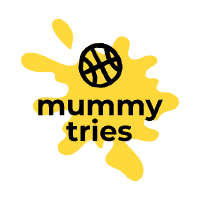Many parents dream of having a close and loving relationship with their adult children. Unfortunately, not all parent-child relationships are perfect, and some parents may find themselves in a difficult situation where their adult child hates them. This can be a painful and distressing experience for parents, leaving them feeling confused and helpless.
There are many reasons why a 30-year-old daughter may hate her mother, ranging from childhood issues to adult conflicts. Understanding the roots of the conflict is the first step in addressing this issue. It is essential to communicate effectively and express emotions honestly to rebuild trust and respect. Addressing mental health and well-being is also crucial for both parties to move forward with compassion and understanding.
Key Takeaways
- Understanding the roots of the conflict is the first step in addressing the issue.
- Communication and emotional expression are essential to rebuild trust and respect.
- Addressing mental health and well-being is crucial for both parties to move forward with compassion and understanding.
Understanding the Roots of Conflict
When a parent realizes that their adult child hates them, it can be a devastating realization. It is important to understand the underlying reasons for the conflict to address the issue effectively.
Family Dynamics and History
Family dynamics and history play a significant role in shaping the relationship between parents and adult children. Childhood experiences, such as the quality of attachment, can influence the way adult children interact with their parents. If parents were not emotionally available or responsive in their child’s early years, it can lead to a lack of emotional connection and trust between them in adulthood.
Parenting Styles and Their Impact
Parenting styles and their impact on adult children’s behavior are also essential to consider. Parents who are too controlling or critical can create a hostile environment that can lead to resentment and anger in their children. On the other hand, parents who are too permissive or neglectful can fail to provide the necessary guidance and support, leading to feelings of hurt and abandonment in their children.
Role of Divorce and Family Separation
Divorce and family separation can also have a significant impact on the relationship between parents and adult children. Divorce can cause significant emotional distress and upheaval, leading to feelings of anger and hurt in children. Children may also struggle with loyalty conflicts and feel torn between their parents.
It is crucial to recognize that these factors are not always the cause of conflict between parents and adult children. Each relationship is unique, and there may be other underlying issues at play. By understanding the roots of conflict, parents can take steps to address the issue effectively and improve their relationship with their adult children.
Communication and Emotional Expression
Breaking Down Communication Barriers
Effective communication is essential to any healthy relationship, and this is especially true for parent-child relationships. When a parent realizes that their adult child hates them, it can be a devastating realization. It is important to identify and break down communication barriers that may be hindering healthy communication. One way to do this is to actively listen to the child’s concerns and validate their feelings. This can help build trust and respect, which can lead to more open and honest communication.
Identifying Emotionally Abusive Patterns
Emotional abuse can take many forms, and it is important to recognize when it is happening. Parents should be aware of patterns of behavior that are emotionally abusive, such as belittling, name-calling, or gaslighting. These behaviors can be damaging to a child’s self-esteem and can create a toxic environment. Parents should take steps to address these behaviors and work towards creating a more respectful and supportive relationship with their child.
Encouraging Healthy Expression of Emotions
Healthy expression of emotions is crucial for maintaining a healthy relationship between a parent and child. Parents should encourage their child to express themselves in a healthy and respectful way, while also setting boundaries when necessary. It is important for parents to validate their child’s emotions and provide a safe space for them to express themselves. This can help build trust and respect, and can lead to a stronger and more positive relationship.
In conclusion, communication and emotional expression are key components of a healthy parent-child relationship. Breaking down communication barriers, identifying emotionally abusive patterns, and encouraging healthy expression of emotions can help create a more respectful and supportive relationship between a parent and child. Parents should strive to create a safe and supportive environment for their child to express themselves, while also setting boundaries when necessary.
Rebuilding Trust and Respect
When a parent realizes that their adult child hates them, it can be a devastating realization. However, the situation is not hopeless. Rebuilding trust and respect is possible, but it requires effort and patience from both parties. The following subsections will provide some guidance on how to rebuild trust and respect.
Setting and Respecting Boundaries
One potential cause of conflict between parents and adult children is a lack of boundaries. When parents fail to set limits, adult children may feel entitled to behave disrespectfully. Therefore, it is essential to establish clear boundaries and stick to them. Parents should communicate their expectations and limits to their adult children and enforce them consistently.
On the other hand, adult children also need to respect their parents’ boundaries. They should acknowledge and honor their parents’ wishes, even if they disagree with them. Respecting boundaries is a crucial step in rebuilding trust and respect between parents and adult children.
Dealing with Feelings of Disrespect and Disregard
It is understandable for parents to feel hurt and disrespected when their adult children behave disrespectfully. However, it is crucial to avoid reacting with anger or defensiveness. Instead, parents should try to understand their adult children’s feelings and perspective.
Parents should also communicate their own feelings in a calm and respectful manner. They should express their regret for any past mistakes and their desire to rebuild the relationship. By acknowledging their adult children’s feelings and expressing their own, parents can lay the foundation for rebuilding trust and respect.
The Role of Apologies and Forgiveness
Apologies and forgiveness are essential components of rebuilding trust and respect. Parents should apologize for any past wrongs or mistakes they have made. They should take responsibility for their actions and express their regret sincerely.
At the same time, adult children should be willing to forgive their parents and move forward. Forgiveness does not mean forgetting or condoning past wrongs, but it does mean letting go of resentment and anger. By forgiving their parents, adult children can begin to rebuild trust and respect.
In conclusion, rebuilding trust and respect between parents and adult children is possible, but it requires effort and patience from both parties. By setting and respecting boundaries, dealing with feelings of disrespect and disregard, and offering apologies and forgiveness, parents and adult children can begin to rebuild their relationship.
Addressing Mental Health and Well-being
When dealing with a 30-year-old daughter who hates her parents, it is essential to recognize signs of mental health issues that may be contributing to the situation. Here are some key factors to consider:
Recognizing Signs of Mental Health Issues
Mental health issues such as anxiety, depression, and bipolar disorder can cause significant changes in behavior and mood. If your adult child is displaying signs of mental health problems, such as sudden mood swings, difficulty sleeping, or changes in appetite, it is essential to take these symptoms seriously and seek professional help.
Supporting Your Adult Child’s Independence
While it is natural to want to protect and care for your child, it is essential to recognize that your adult child needs to develop their independence. Encouraging your child to take responsibility for their own life choices, such as finding a job or a place to live, can help them develop a sense of self-worth and independence.
The Importance of Professional Therapy
Professional therapy is an effective way to address mental health issues and improve well-being. Encouraging your adult child to seek therapy can help them develop coping skills and strategies to manage their emotions and behavior. Therapy can also provide a safe and supportive environment for your child to express their feelings and work through any underlying issues.
In conclusion, addressing mental health and well-being is essential when dealing with a 30-year-old daughter who hates her parents. Recognizing signs of mental health issues, supporting your child’s independence, and encouraging professional therapy can help improve the situation and promote a healthier relationship between parent and child.
Moving Forward with Compassion and Understanding
When a parent realizes that their adult child hates them, it can be a devastating realization. However, it is important to approach the situation with compassion and understanding. By doing so, parents can start to rebuild their relationship with their child.
Finding Common Ground
One way to move forward is to find common ground with the adult child. This involves identifying shared interests or experiences that can be used as a starting point for rebuilding the relationship. For example, if the parent and child both enjoy hiking, they can plan a hike together.
Another way to find common ground is to focus on shared values. By identifying values that both the parent and child hold dear, they can work together to find ways to live those values. This can help to create a sense of connection and understanding between the two parties.
Strengthening Parent-Child Relationships
Another way to move forward is to focus on strengthening the parent-child relationship. This involves taking steps to improve communication and build trust between the two parties. One way to do this is to set aside time to talk with the adult child. During these conversations, it is important to listen actively and avoid being judgmental or critical.
Parents can also work to strengthen their relationship with their child by providing guidance and support. This can involve offering advice or assistance when the child is facing challenges. By doing so, parents can demonstrate that they care about their child’s well-being and are invested in their success.
In conclusion, moving forward with compassion and understanding is key to rebuilding a parent-child relationship when the adult child hates the parent. By finding common ground and strengthening the relationship, parents can work to create a stronger, more positive bond with their child.
Frequently Asked Questions
Why does my adult daughter push me away?
There can be many reasons why an adult daughter may push her mother away. One reason could be that the daughter feels like her mother is too controlling or overbearing. Another reason could be that there is a lack of boundaries in the relationship, which can lead to resentment and conflict. It is important to have an open and honest conversation with your daughter to understand her perspective and work towards a resolution.
How can I repair a broken relationship with my adult daughter?
Repairing a broken relationship with an adult daughter can be a challenging process, but it is possible. It is important to take responsibility for your actions and apologize for any hurt or pain you may have caused. It is also important to listen to your daughter’s perspective and validate her feelings. Consider seeking the help of a professional therapist or mediator to facilitate the healing process.
What are the signs that my daughter may resent me?
Some signs that your daughter may resent you include avoiding contact or communication, being dismissive or critical of your opinions or ideas, blaming you for issues in her life, and being unwilling to spend time with you. It is important to have an open and honest conversation with your daughter to understand her perspective and work towards a resolution.
Why does my daughter blame me for issues in her life?
It is common for children to blame their parents for issues in their lives, even as adults. Your daughter may be blaming you for issues in her life because she feels like you did not provide her with the support or guidance she needed when she was younger. It is important to have an open and honest conversation with your daughter to understand her perspective and work towards a resolution.
How should I respond if my daughter treats me poorly?
If your daughter treats you poorly, it is important to set boundaries and communicate your expectations clearly. Let your daughter know how her behavior is impacting you and how you would like to be treated. It is also important to take care of yourself and seek support from friends or a therapist if needed.
What steps can I take if my daughter has cut me out of her life?
If your daughter has cut you out of her life, it is important to respect her decision and give her space. However, it is also important to let her know that you are open to communication and willing to work towards a resolution. Consider seeking the help of a professional therapist or mediator to facilitate the healing process.

My name is Laura, and as a mother of two, I understand firsthand the joys and challenges of raising a child. That’s why I created this website, to provide a comprehensive and trustworthy source of information and support for new and expectant parents.






